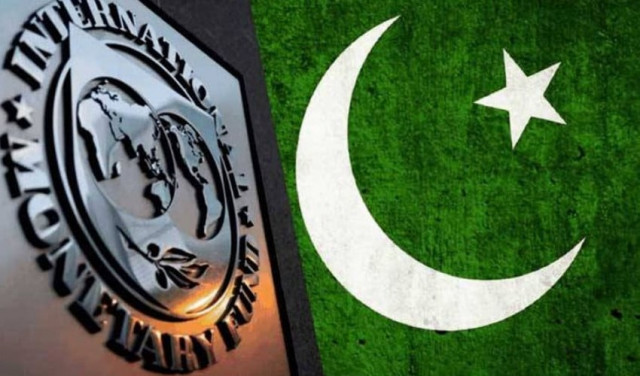IMF's nod sought for power relief to flood victims
Govt asks lender to grant waiver on bills for three months

In an effort to mitigate the sufferings of the people hit by the worst flooding in decades, the government has decided to provide relief in electricity bills to consumers and sought the International Monetary Fund's nod for this purpose.
The floods in three rivers have so far rendered millions of people homeless, besides damaging crops on 1.3 million acres of land. Prime Minister Shehbaz Sharif asked the Ministry of Finance to reach out to the IMF and get its consent for giving relief in electricity bills in the areas damaged by the ongoing floods, according to government sources.
After the prime minister's instructions, the ministry on Friday held a virtual meeting with the IMF and sought its endorsement for the waiver of the bills, they added.
The Pakistani authorities requested the IMF to defer the bills for three months on the grounds that similar relief had been offered in 2022 in the flood-affected areas. The IMF has sought more data, which the Power Division would provide within this week.
Sources said that so far consumers in the regions of the Lahore Electricity Supply Company, Gujranwala Electric Power Company, Faisalabad Electricity Supply Company and Multan Electric Power Company have been adversely affected by the biblical deluge. There are chances that consumers of the Sukkur Electric Power Company will also be impacted by the floods.
The immediate concern is to address the issue of the electricity bills for the month of August, which are now due, said Sardar Awais Laghari, Federal Minister for Power while talking to The Express Tribune. He said that the Power Division was collecting the data in the affected areas and only then it will be in a position to assess the fiscal requirements to provide relief.
The prime minister is very much inclined to ease the burden of power consumers in the affected areas and soon a formal announcement will be made in this regard, said Laghari.
The government was considering multiple options to provide the relief. One of the options is to give financial assistance through the Benazir Income Support Programme. But it limits the outreach to all the affected people. The other option is to provide flood relief fiscal package.
The severe flooding in the Chenab, Ravi and Sutlej rivers has inundated vast lands, making millions of people homeless. So far, the worst affected districts include Gujarat, Gujranwala, Sialkot, Narowal, Muzaffargarh, Multan and Bahawalpur.
Nearly 6,500 animals have already been perished in the floods and the standing crops on 1.32 million acres of land have been inundated. People are in dire need of the government's assistance, as they have lost both the shelter and the livelihood.
The government has already declared the agriculture emergency in the flood affected areas. The prime minister has instructed that the relief should be provided both in rural areas and the cities.
However, sources said that Punjab was not so far claiming the inundating of the entire 1.32 million lands as damages to the crops. There is a view that some of the crops might only be inundated and the situation will be clear once the water recedes.
Rana Tanveer Hussain, Federal Minister for Food and National Security, said this week that the provincial governments would also work on waiving land revenue for affected regions.
Tanveer stated that once surveys of the flood-impacted regions are complete, a farmers' support package will be announced. The survey is expected to conclude by mid-September, and preliminary data indicates crop losses across various areas, with the Gujranwala division experiencing the highest damage, up to 18%. Rice fields, in particular, have suffered significant losses.
The IMF mission is coming to Pakistan by the third week of this month. The sources said that the Ministry of Finance was reviewing the possibility of requesting the IMF to relax the targets of the primary budget surplus and the provincial cash surplus.
The finance ministry was also working on the farmer's support package in line with a similar package given after the 2022 devastating floods, said the sources. They said that Pakistan has a compelling case for seeking the relaxation in these fiscal targets for the current fiscal year due to huge magnitude of the losses.
A delegation of federal secretaries also this week visited National Emergencies Operation Center (NEOC) at NDMA Headquarters. The NDMA gave a briefing on the prevailing monsoon situation and the response measures being undertaken by the authority.
The floods have impacted the supplies of the perishable foods. According to weekly inflation bulletin of Pakistan Bureau of Statistics, the year on year trend depicts increase of 5.03% in inflation this week compared to a year ago. It added major increase is observed in the prices of tomatoes, which jumped 91%, sugar 29.3%, wheat flour 18.7%, pulses 15 %), and beef 12%,
However, on weekly basis, the SPI for the current week ended on September 11, 2025 slightly decreased due to 10% reduction in the prices of wheat flour after the government of Punjab took some corrective administrative measures.




















COMMENTS
Comments are moderated and generally will be posted if they are on-topic and not abusive.
For more information, please see our Comments FAQ